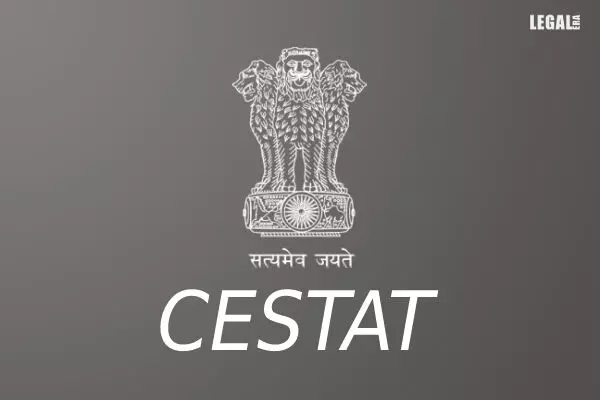- Home
- News
- Articles+
- Aerospace
- Artificial Intelligence
- Agriculture
- Alternate Dispute Resolution
- Arbitration & Mediation
- Banking and Finance
- Bankruptcy
- Book Review
- Bribery & Corruption
- Commercial Litigation
- Competition Law
- Conference Reports
- Consumer Products
- Contract
- Corporate Governance
- Corporate Law
- Covid-19
- Cryptocurrency
- Cybersecurity
- Data Protection
- Defence
- Digital Economy
- E-commerce
- Employment Law
- Energy and Natural Resources
- Entertainment and Sports Law
- Environmental Law
- Environmental, Social, and Governance
- Foreign Direct Investment
- Food and Beverage
- Gaming
- Health Care
- IBC Diaries
- In Focus
- Inclusion & Diversity
- Insurance Law
- Intellectual Property
- International Law
- IP & Tech Era
- Know the Law
- Labour Laws
- Law & Policy and Regulation
- Litigation
- Litigation Funding
- Manufacturing
- Mergers & Acquisitions
- NFTs
- Privacy
- Private Equity
- Project Finance
- Real Estate
- Risk and Compliance
- Student Corner
- Take On Board
- Tax
- Technology Media and Telecom
- Tributes
- Viewpoint
- Zoom In
- Law Firms
- In-House
- Rankings
- E-Magazine
- Legal Era TV
- Events
- Middle East
- Africa
- News
- Articles
- Aerospace
- Artificial Intelligence
- Agriculture
- Alternate Dispute Resolution
- Arbitration & Mediation
- Banking and Finance
- Bankruptcy
- Book Review
- Bribery & Corruption
- Commercial Litigation
- Competition Law
- Conference Reports
- Consumer Products
- Contract
- Corporate Governance
- Corporate Law
- Covid-19
- Cryptocurrency
- Cybersecurity
- Data Protection
- Defence
- Digital Economy
- E-commerce
- Employment Law
- Energy and Natural Resources
- Entertainment and Sports Law
- Environmental Law
- Environmental, Social, and Governance
- Foreign Direct Investment
- Food and Beverage
- Gaming
- Health Care
- IBC Diaries
- In Focus
- Inclusion & Diversity
- Insurance Law
- Intellectual Property
- International Law
- IP & Tech Era
- Know the Law
- Labour Laws
- Law & Policy and Regulation
- Litigation
- Litigation Funding
- Manufacturing
- Mergers & Acquisitions
- NFTs
- Privacy
- Private Equity
- Project Finance
- Real Estate
- Risk and Compliance
- Student Corner
- Take On Board
- Tax
- Technology Media and Telecom
- Tributes
- Viewpoint
- Zoom In
- Law Firms
- In-House
- Rankings
- E-Magazine
- Legal Era TV
- Events
- Middle East
- Africa
CESTAT sets-aside denial to avail CENVAT credit on service tax

CESTAT sets-aside denial to avail CENVAT credit on service tax
The company had sought a cash refund under the Central Goods and Services Tax Act, 2017
The Mumbai bench of the Customs, Excise & Service Tax Appellate Tribunal (CESTAT) has rejected the denial to avail of the Central Value Added Tax (CENVAT) credit on service tax paid during the Goods and Services Tax (GST) regime under the Reverse Charge Mechanism (RCM).
The appellant, Brose India Automotive Systems had paid the service tax during the GST regime under RCM on the import of services.
The company filed a refund application within the limitation period of one year under the Central Excise Act, 1944. But after the onset of the GST regime, it could not avail of the credit. The appellant then sought a cash refund by invoking the protection granted under the Central Goods and Services Tax (CGST) Act, 2017.
But the adjudicating authority (AA) rejected the refund application. He conveyed that GST was payable on the recorded transactions, as the final booking was made in the account books during the GST regime. Even though the service had been rendered (prior to July 2017) during the pre-GST regime.
Since the Commissioner (Appeals) also confirmed the order, the appellant appealed before CESTAT.
The appellant's counsel Sri S. Narayanan submitted that the appellant was eligible to avail credit of the service tax paid, as the input services were used for manufacturing activities. Since carrying forward of CENVAT credit to the GST regime had expired in December 2017, the appellant was left with no choice. Therefore, he had to get the CENVAT credit in cash as contemplated under the CGST Act.
The tribunal observed that under the CGST Act, any proceeding including an appeal if filed after the appointed day under the Repealed Act would continue as if the GST Act had not come into force. Also, the previous Act had not been amended.
The single bench comprising Judicial Member Dr. Suvendu Kumar Pati allowed the appeal.
He ordered, "The appellant is entitled to get a refund of CENVAT credit against which payment of service tax was made during the GST regime and accepted by the Respondent-Department. The department is directed to pay the refund amount of Rs.18,43,422 along with applicable interest within three months."



